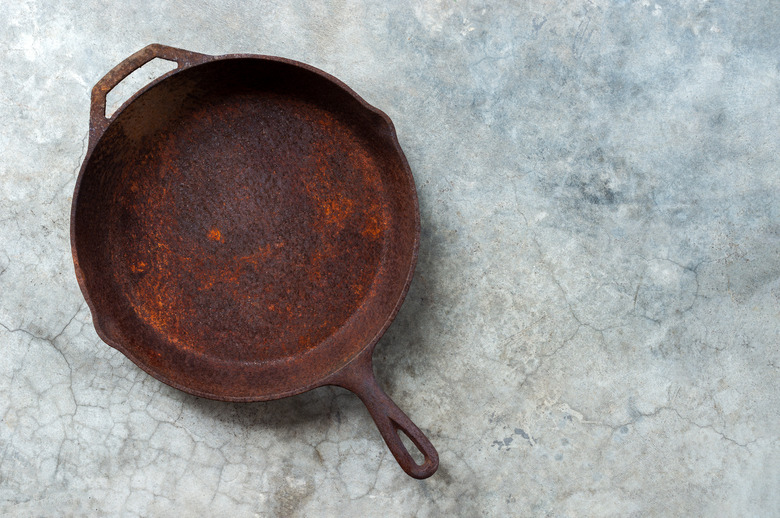What Metals Will Form Rust?
We may receive a commission on purchases made from links.
The only metals that truly rust are metals capable of forming that brownish corrosion, also known as iron oxide. Iron and any metal that contains iron as one of its elements could rust when exposed to water and oxygen. Many other metals also corrode or oxidize, yet the chemical reaction that occurs as this happens doesn't create actual iron oxide or rust.
What Is Rust?
What Is Rust?
The rust-colored stuff often found on old cars is iron oxide, created when iron, oxygen, and water react with one another. During this process, any metal containing iron starts to oxidize. As part of the oxidation process, rust develops. When iron oxidizes or corrodes, new chemical compounds form, and one of them is the reddish-brown substance known as rust.
Since the air or water reaching the metal might contain other elements, such as the sulfur of an acid rain, some of the compounds formed are often totally different than rust, resulting in different color changes atop the metal. The rust is only the reddish stuff that eventually corrodes the metal, causing holes.
Metals That Rust
Metals That Rust
Since iron is a key component of iron oxide, also known as rust, iron must be present for the rusting process to occur. Iron is used in all types of steel, so any noncoated steel could rust if exposed to oxygen and moisture long enough. Any metal considered a ferrous metal could form rust, as the word "ferrous" means "containing iron." Cast iron, wrought iron, and carbon steel are all metals that rust, although the formulation of wrought iron helps it resist rusting for longer than many types of steel. While stainless steel doesn't usually rust thanks to the chromium within it that helps create a protective shield, harsh chemicals could cause it to rust as well.
While you've probably seen a rusty tin can at some point, tin itself does not rust. Tin cans are actually made of steel, which is dipped into molten tin to create a thin tinplate layer. If something scratches through the tinplate, exposing the steel, rust eventually develops.
Tarnish and Patina
Tarnish and Patina
Tarnish and patina are terms sometimes used in the same context as rust, and they're similar but not entirely related. Rust is a form of corrosion that's capable of causing holes in a metal object, whereas tarnish and patina simply affect the surface of the metal. A tarnish on the surface of metal usually makes it look dull and more gray, as in antique tarnished silver. A patina is usually a desirable change in the surface color of metal, happening due to long-term exposure to air or the elements in general. Patina often refers to the greenish hue also known as verdigris that's found on copper or bronze items.
